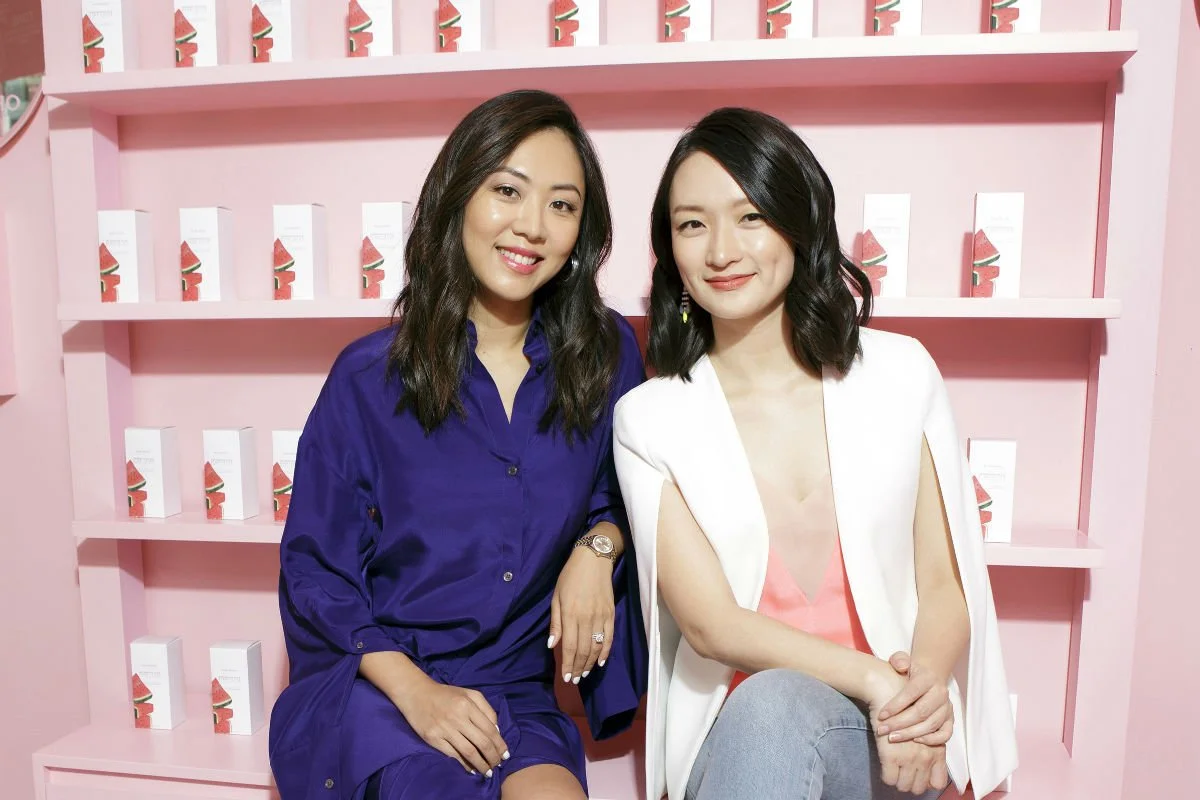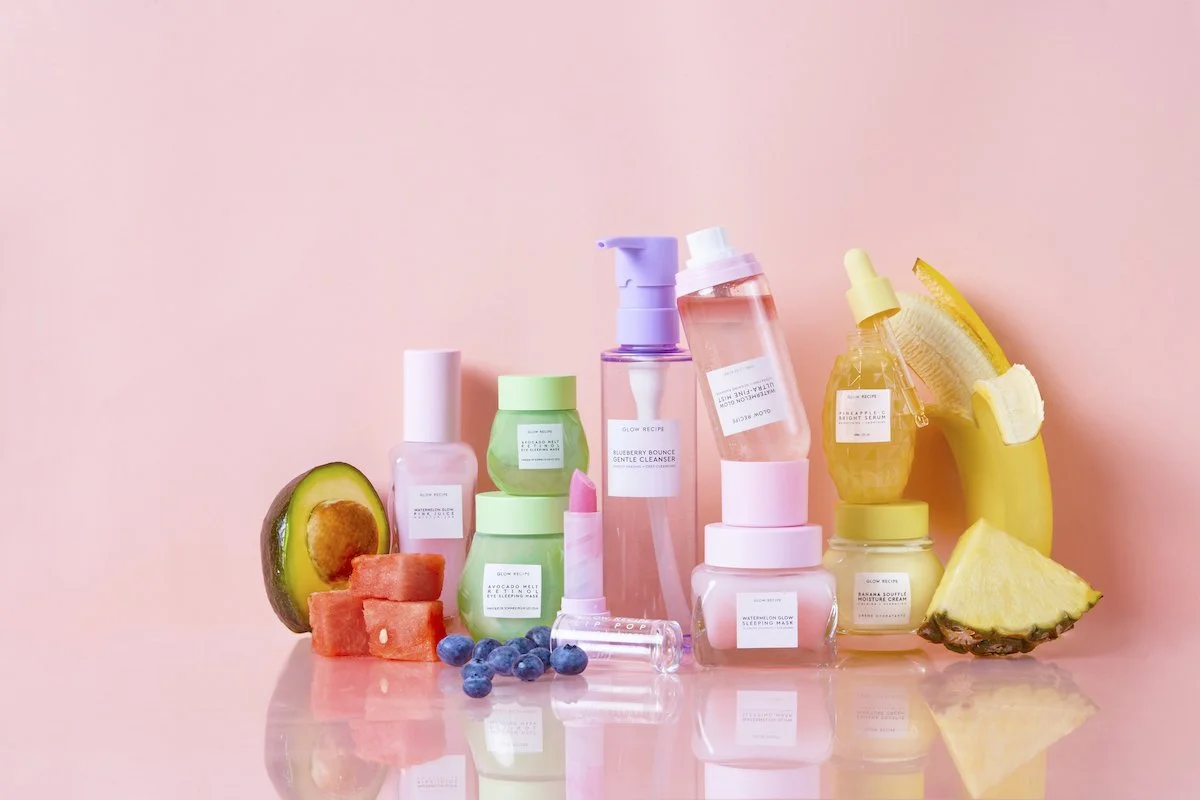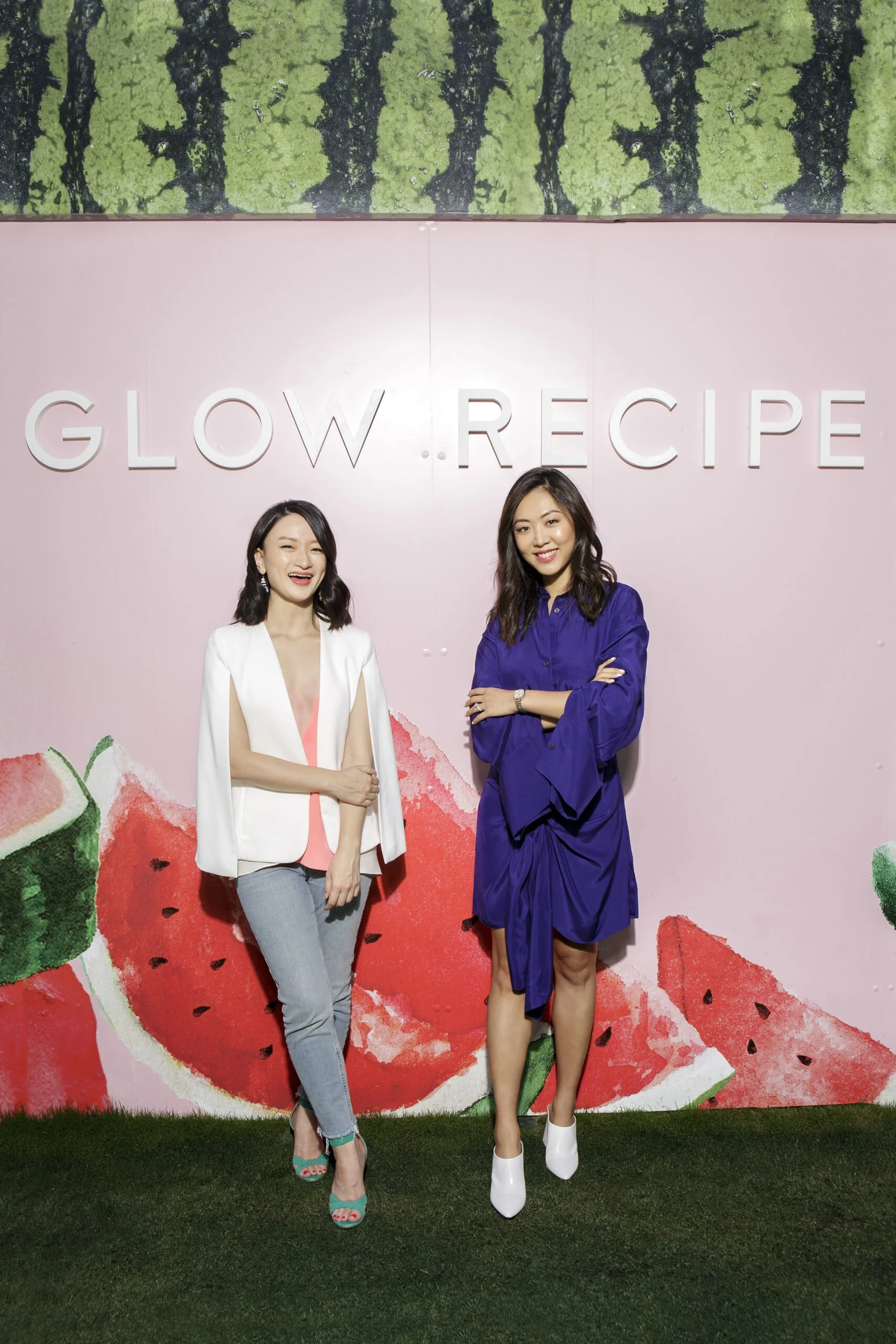Sarah Lee and Christine Chang, Founders and CEOs, Glow Recipe
On diversity in the beauty industry, sharing their heritage with the world and making K-beauty accessible to all.
Sarah Lee and Christine Chang. Photo: Courtesy Glow Recipe.
Look at any beauty editor, influencer or blogger’s top shelf, and you’ll most likely spot a milky pink liquid housed in a rounded glass cube and topped off with a pink lid. That would be Glow Recipe’s wildly popular Watermelon Glow Sleeping Mask — yes, the juicy, bouncy sleeping mask made with real watermelon that amassed a 5,000-person waitlist before its initial release in 2017.
Though the product was from a newer beauty brand at the time, it came from the minds of beauty industry veterans, Sarah Lee and Christine Chang. The pair has over 20 years of experience of working in the beauty industry at a global scale, having both started their careers at L’Oréal Korea, working in global marketing, product development and research for major brands such as Lancôme and Kiehl’s. As they were the only two employees in the company with expertise in both the Korean and American markets, they had a unique perspective and decided to leverage their years of bi-cultural beauty industry experience to bring real Korean beauty products and innovations to the American consumer.
And thus, Glow Recipe was born — a destination for clean, fruit-powered skincare. When glowrecipe.com first launched in 2014, it was meant to be an educational platform and curated e-commerce site of K-beauty products. But when Lee and Chang began realizing that a lot of technology and ingredients were not being harnessed in the U.S., they decided to create their own product line to make K-beauty more accessible to the American market.
“From the very beginning of Glow, our mission has always been to really educate and really focus on creating amazing content that helps break down, demystify and bring to life the heart of what Korean skincare is, which is all about having fun with your skincare. We call it skintertainment,” says Chang.
Below, Sarah and Christine speak to The RepresentASIAN Project about navigating their dual identities and using it to their advantage, sharing their cultural backgrounds with the world and being Asian female entrepreneurs in the beauty industry.
The Glow Recipe product lineup. Photo: Courtesy Glow Recipe.
On using dual identity to their advantage
Christine: Because of the way Sarah and I both grew up, we’re essentially third-culture kids. I grew up in Louisiana because my dad was studying there, I moved to Korea for a couple of years, then I moved to Australia and came back to the States for college, whereas Sarah went to school in Hong Kong during her adolescent years. So, living in different cultures and different cities and different environments is something we’re very used to and I think, if anything, it really helps us translate nuances between different cultures and different languages more readily because we’ve been through this.
For us, bridging all that amazing knowledge and innovation in Korea and bringing it over to the States in a very approachable, accessible way — that was our passion because we wanted to do it in the most accurate, but yet in the most fun way possible for women all over the world to experience.
“Living in different cultures… cities and… environments… really helps us translate nuances between different cultures and different languages more readily because we’ve been through this.”
On why K-beauty is embraced by Americans
Sarah: Skincare can be universal. I think that’s first and foremost what made this more mainstream and easily with the power of social media. But I think it’s the approach that made Korean skincare more special — almost even more so than the formulations or the technologies themselves. The approach to prevention and always remembering to hydrate the skin from a very young age or protecting the skin with layers of SPF and not forgetting that every single day, these are the tips we’ve learned from our mothers who learned the tips from their mothers. It’s types of beauty traditions and rituals that were transcending from generation to generation. And that is very deeply rooted in Korean skincare.
There are historical mentions from old books where Korean women from hundreds and hundreds of years ago would have beauty facials with rice water or splash water on their face to get that hydrating or smoothing effect. And we’re still using those tips and tricks with modern formulas. I think that type of approach, and also being able to enjoy skincare and not thinking of it as a chore, is really resonating with a global consumer.
On making K-beauty more accessible to the masses
Christine: I think the interest in K-beauty was already building and it was just a matter of customers not being able to find the right place to shop or not being able to have that content hub of education and tips and tricks to really understand these amazing skincare innovations and philosophies firsthand. So, I think our educational videos and our approach have been received so well because that’s what the customers were really hungry for. Over the years we’ve really seen that disseminate and it’s been incredibly gratifying to see people have amazing dialogue on social media, talking about their skincare routines or tips and tricks and having fun while they’re doing it and having a socially-shareable, amazing experience.
Christine Chang and Sarah Lee. Photo: Courtesy Glow Recipe.
On being Asian female entrepreneurs in the beauty world
Christine: There’s really an amazing network of inspirational founders, both Asian and of diverse ethnicities in our lives, and I think it’s amazing to have that sense of community where there’s always someone you can call or email and ask questions share the highs and lows together. It’s been one of the best parts of this journey that we’ve been able to meet such a remarkable group of founders that we can relate to and engage with.
Sarah: To be honest, the fact that we’re in the beauty industry and the time where we’re at where diversity and individuality are being celebrated, I think it’s actually an amazing time to be an Asian woman. So, if anything, I think we’re in a very unique position that we’re able to leverage our experience, but also our backgrounds and really bridge the K Beauty technologies, but also trends and all the tips and tricks that we’re seeing on the other side of the world and bringing them here in a way that’s more digestible.
On being able to share their cultural backgrounds with the world
Christine: It’s honestly been an incredibly humbling and gratifying experience because I think growing up, it wasn’t like there was a huge body of Asian literature or Asian culture or Asian films that were being brought over or Asian leads on TV. And over time, that has really evolved and I think in a way, [the fact that] we happen to have beauty experience in both countries during a time where there was a curiosity and a demand for K Beauty and have been able to leverage our experience both culturally and professionally, it almost feels like it was meant to be. It’s just a journey that we’re really, really grateful that we are able to take.
“I think it’s actually an amazing time to be an Asian woman.”
On making their parents and families proud
Sarah: They’re very proud. I don’t think that in the beginning, when we started our business, they knew or understood what we were trying to do, because they were quite new at the time — I don’t think there were a lot of business that were focused on bringing K Beauty to the global market and also just bridging the gap. But once they started seeing the growth of their business but also media outlets talking about K-beauty’s influence and how the beauty industry is evolving, our parents, our family members were so proud and really excited to be part of this movement.
This interview has been edited for length and clarity.



